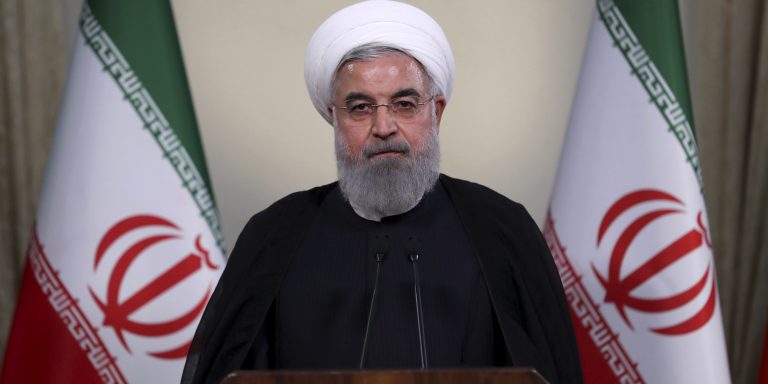INTELBRIEF
July 5, 2018
IntelBrief: Iran’s Economic Crisis

- The reimposition of U.S. sanctions is having the expected adverse effect on Iran’s economy, and has produced renewed popular unrest.
- The cause of the crisis is the stampede of corporate announcements of disengagement from the Iran market.
- Economic difficulties will not cause Iran’s leaders to lose power, renegotiate the 2015 nuclear agreement, or retrench Iran’s regional interventions.
- Iranian leaders are more likely to pull out of the nuclear agreement because of the economic and political instability.
.
.The May 8, 2018, Trump Administration announcement that the United States is exiting the 2015 multilateral nuclear agreement with Iran has produced the effects on Iran’s economy that the Administration intended. In June, the value of Iran’s currency, the rial, collapsed to as low as an unprecedented 90,000 rials to the U.S. dollar – double the official exchange rate. In concert, inflation spiked to more than 15% after years of stability. In late June, Tehran’s Grand Bazaar shut down as merchants were unable to set prices and the government banned the importation of 1,400 goods to preserve hard currency supplies. The closure sparked protests based on the scarcity of goods and overall worsening economic conditions – the first significant unrest since economy-driven protests of late 2017. Early July protests in southern Iran over a lack of clean drinking water turned violent.
The cause of the economic difficulties is undoubtedly the steady stream of announcements by major corporations in Iran’s major trading partners that they are abandoning the Iran market rather than risk their position in the large U.S. economy. Companies in the European Union, East Asia, and India, in all major industries, have said they are winding down their business in Iran by the November 4, 2018 deadline for all U.S. sanctions to go back into effect. These include Italian industrial giants, French carmakers, South Korean petrochemical plant builders, worldwide shippers and shipping insurers, and major global banks.
Most crucially for Tehran, refiners in several of Iran’s major oil customers – including the EU, Japan, South Korea, and India – have announced they are shifting to alternative crude oil sources, particularly Saudi Arabia. They are responding to a Trump Administration warning that it will impose penalties unless oil buyers reduce purchases from Iran all the way to zero. China and Turkey are, for now, refusing to cut purchases, but these two alone are not sufficient to sustain Iran’s exports. The Airbus and Boeing aircraft that Iran Air ordered will not be delivered, because their U.S. export licenses are being revoked.
Yet, the Trump Administration’s intent to force Iran to capitulate on a number of fronts is unlikely to succeed, in large part because Iran’s revolutionary ideology is based on resistance to U.S. pressure. The regime will not likely accept U.S. insistence to renegotiate the nuclear deal to include indefinite curbs on its nuclear program or limits on its ballistic missile program. The protests are nowhere near the scope or intensity to cause the regime to fall. And, Iran has proved able to intervene to protect its regional allies and core security interests no matter how intense the sanctions pressure.
A key question is whether economic difficulties and protests will cause Iran to leave the Iran nuclear deal and expand its nuclear program. Some in the regime fear that protests will escalate further if Iran pulls out of the deal. However, the hardliners that dominate the regime believe that the economic problems prove that the nuclear deal did not deliver the promised benefits. These leaders are likely to prevail in their insistence that Iran leave the deal, a decision that would present the Trump Administration with a nuclear threat that was contained when it took office.
.
For tailored research and analysis, please contact: info@thesoufancenter.org
[video width="960" height="540" mp4="https://thesoufancenter.org/wp-content/uploads/2018/07/IB-0705.mp4" poster="https://thesoufancenter.org/wp-content/uploads/2018/07/AP_18128719386483.jpg"][/video]